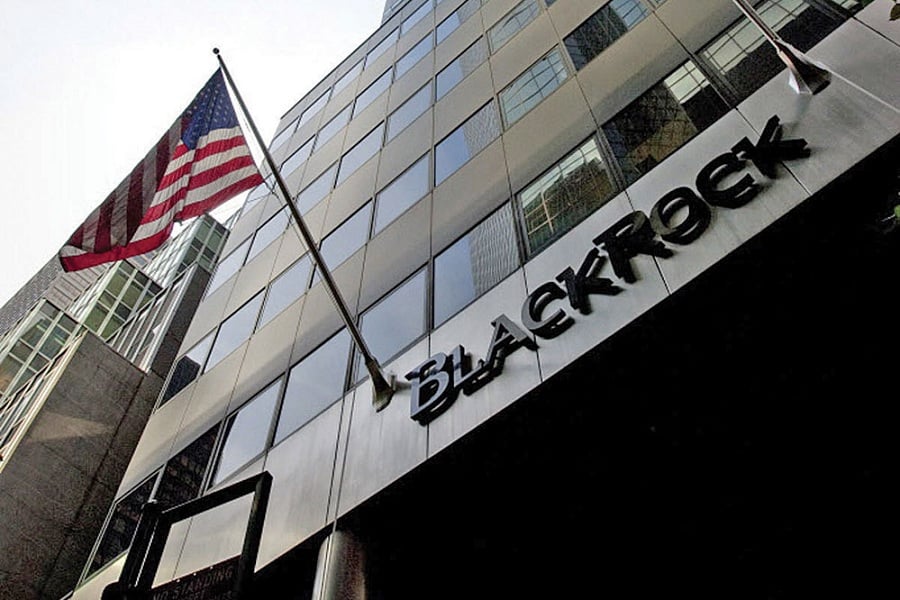

BlackRock reported record-high assets under management of $11.58 trillion for the first quarter of 2025, even as its net income slipped and broader markets faced volatility.
The New York-based asset manager’s net income for the quarter was $1.51 billion, a 4 percent decline from the same period last year, due in part to one-time costs related to key acquisitions it made last year.
Focusing on the core business, BlackRock saw a 20 percent year-over-year increase in its adjusted net income.
Earnings per share came in at $9.64, slightly below Wall Street estimates of $9.67, while adjusted earnings reached $11.30 per share, ahead of expectations. Quarterly revenue was $5.28 billion, missing consensus forecasts by a narrow margin.
Despite the earnings miss, long-term net inflows reached $83 billion in the first quarter, up from $76 billion a year earlier. Fixed income products accounted for $37.7 billion in inflows, while equity products brought in $19.3 billion. Retail flows in the US contributed $8 billion, lifting total retail assets to $1 trillion.
"Uncertainty and anxiety about the future of markets and the economy are dominating client conversations," BlackRock chairman and CEO Larry Fink said in the quarterly report.
"We’ve seen periods like this before when there were large, structural shifts in policy and markets – like the financial crisis, COVID, and surging inflation in 2022. We always stayed connected with clients, and some of BlackRock’s biggest leaps in growth followed," Fink said.
He did not explicitly flag the issue of tariffs or the unfolding game of trade policy chicken between the US and China. But BlackRock's Q1 report noted "global trade tensions [and] tariffs" among the external factors that could cause its results to materially diverge from forward-looking statements. Those factors were not mentioned in its previous quarterly reports in 2024.
The firm attributed its 6 percent organic base fee growth – its strongest first quarter performance since 2021 – to broad-based momentum across ETFs, private markets, and systematic active strategies. Total revenue rose 12 percent year over year, helped by market appreciation, growth in base fees, and higher contributions from the firm's technology services segment.
BlackRock's technology services and subscription revenue increased 16 percent from a year earlier, supported in part by its 2024 acquisition of alternatives data firm Preqin, which closed in early March. Aladdin, the firm’s end-to-end investment management platform, continued to be a key driver of that segment’s growth.
The S&P 500 declined 4.6 percent during the quarter, marking its worst opening three-month performance since 2022. BlackRock’s stock has declined more than 15 percent year to date, though it's up roughly 10 percent over the past year.
"BlackRock’s positioning and connectivity with clients are stronger than ever, and it’s clear in our results," Fink said. "We delivered 6 percent organic base fee growth in the first quarter, representing our best start to a year since 2021 and secular strength against a complex market backdrop."
Private markets continued to attract investor interest, with $7 billion in net inflows bringing total assets in that segment to $212 billion. Apart from Preqin, BlackRock has made a series of strategic acquisitions in the areas of private credit and private infrastructure over the past year. More recently in March, it bolstered its model portfolio offerings with the launch of customizable portfolios that feature exposure to private credit, with other asset classes to be added in the near term.
ETFs also had a record-breaking quarter, contributing to the firm’s $84 billion in total net inflows.
Total expenses rose to $3.58 billion from $3.04 billion a year earlier, reflecting higher operational costs and integration expenses related to recent acquisitions.

Chasing productivity is one thing, but when you're cutting corners, missing details, and making mistakes, it's time to take a step back.

It is not clear how many employees will be affected, but none of the private partnership’s 20,000 financial advisors will see their jobs at risk.

The historic summer sitting saw a roughly two-thirds pass rate, with most CFP hopefuls falling in the under-40 age group.

"The greed and deception of this Ponzi scheme has resulted in the same way they have throughout history," said Daniel Brubaker, U.S. Postal Inspection Service inspector in charge.

Elsewhere, an advisor formerly with a Commonwealth affiliate firm is launching her own independent practice with an Osaic OSJ.
Stan Gregor, Chairman & CEO of Summit Financial Holdings, explores how RIAs can meet growing demand for family office-style services among mass affluent clients through tax-first planning, technology, and collaboration—positioning firms for long-term success
Chris Vizzi, Co-Founder & Partner of South Coast Investment Advisors, LLC, shares how 2025 estate tax changes—$13.99M per person—offer more than tax savings. Learn how to pass on purpose, values, and vision to unite generations and give wealth lasting meaning
